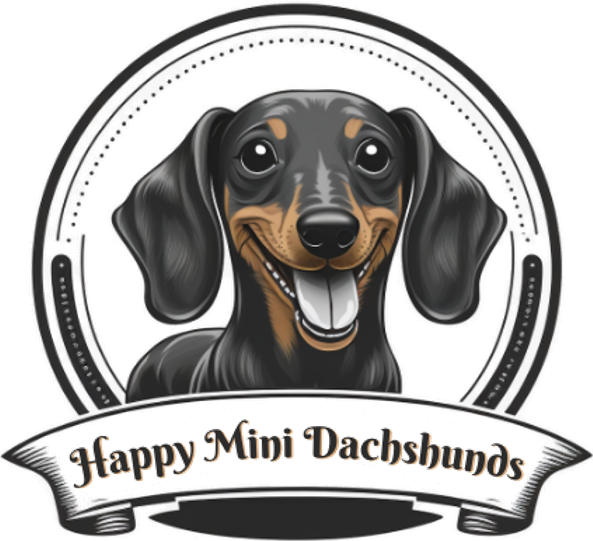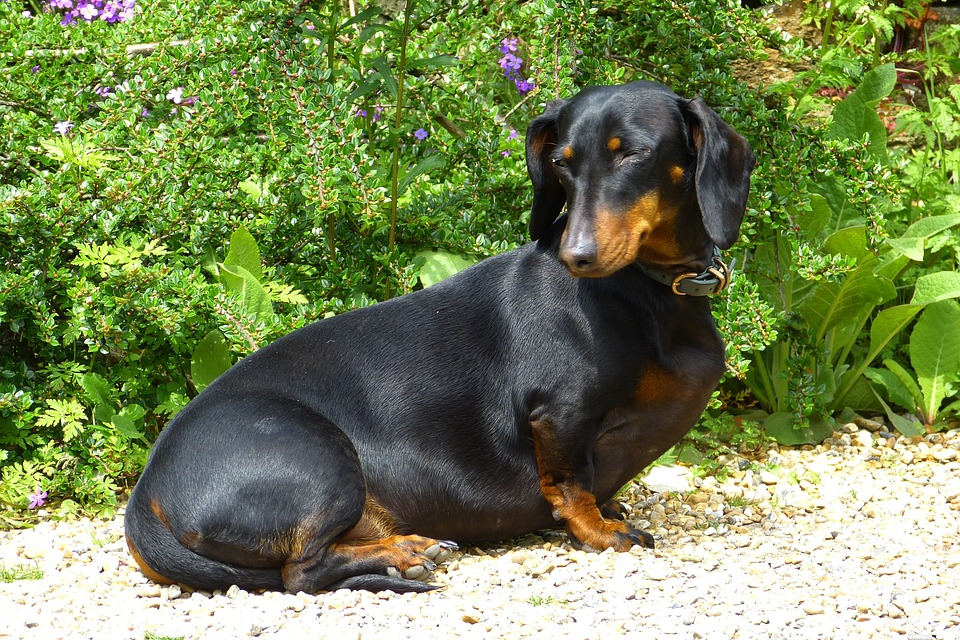Dogs are loyal companions that bring joy and love into our lives. As pet owners, it is our responsibility to provide them with the care they need to live long, healthy lives. One aspect of this care is ensuring that our furry friends maintain a healthy weight. Miniature dachshunds are a popular breed, but they are prone to obesity, which can lead to serious health issues. If your miniature dachshund is overweight, it’s important to take action to help them lose weight in a healthy and sustainable way.
In this blog post, we will discuss how to help your miniature dachshund lose weight. We will start by explaining why miniature dachshunds tend to gain weight and the health risks associated with obesity in dogs. We will then provide guidance on how to develop a weight loss plan, including tips on exercise and activity, diet and nutrition, and avoiding common pitfalls. By the end of this post, you’ll have a better understanding of how to help your miniature dachshund achieve and maintain a healthy weight, so they can live a happy and active life by your side.
Key Takeaways:
- Understand the importance of weight loss for your miniature dachshund’s health
- Develop a comprehensive weight loss plan including diet and exercise
- Avoid common pitfalls and ensure long-term success for your furry friend
Understanding why your miniature dachshund is overweight
Miniature dachshunds are prone to obesity, and there are several reasons why they may become overweight. One of the main reasons is overfeeding. Many pet owners love to show affection to their furry friends by giving them treats, but this can quickly add up in calories. In addition, dachshunds have a tendency to beg for food, and their pleading eyes can be hard to resist. However, it’s important to resist the temptation to give in to their demands and stick to a healthy feeding plan.
Another reason why miniature dachshunds may gain weight is due to a lack of exercise. While dachshunds are known for their love of snuggles and cuddles, they also require regular physical activity to maintain a healthy weight. If your dachshund spends most of their day sleeping or lounging on the couch, they are not getting the exercise they need to burn off excess calories. It’s important to provide your dachshund with regular opportunities for exercise, such as going for walks or playing fetch in the yard.
Obesity in miniature dachshunds can also be caused by medical conditions such as hypothyroidism or Cushing’s disease. These conditions can slow down a dog’s metabolism, making it harder for them to burn off calories. If you suspect that your dog may have a medical condition, it’s important to consult with your veterinarian.
In addition to the aesthetic concerns associated with being overweight, obesity in dogs can lead to serious health issues. Overweight dogs are at risk for developing conditions such as diabetes, heart disease, joint problems, and respiratory issues. These health issues can significantly impact the quality of life for your dog and may even lead to a shorter lifespan.
To determine if your miniature dachshund is overweight, you can perform a simple body condition score test. This involves feeling your dog’s ribs and looking at their body shape from above. A healthy dog should have a waistline and be able to feel their ribs without having to press too hard.
Developing a weight loss plan
Once you have a clear understanding of why your miniature dachshund is overweight, it’s time to develop a weight loss plan. Remember, the goal is to help your dog lose weight in a safe and healthy way, while still ensuring they get all the nutrients they need to thrive.
Consult with your vet
The first step in developing a weight loss plan for your dog is to consult with your vet. They can help you determine your dog’s ideal weight and provide guidance on how much to feed them, as well as recommend any dietary changes or supplements that may be necessary.
Choose a high-quality, low-calorie diet
Choose a high-quality, low-calorie dog food that is appropriate for your dog’s age, weight, and activity level. Look for foods that are high in protein and fiber and low in fat and calories. You can also consider feeding your dog a homemade diet, but be sure to consult with your vet or a veterinary nutritionist to ensure it is balanced and provides all the necessary nutrients.
Measure your dog’s food
To help your dog lose weight, it’s important to measure their food carefully. Use a measuring cup to ensure you are providing the right amount of food, and be sure to adjust the portion size as your dog loses weight.
Limit treats
Treats can quickly add up in calories, so it’s important to limit them. Consider using low-calorie treats or giving your dog small pieces of fresh fruits and vegetables as a treat.
Increase exercise
Increasing your dog’s exercise can help them burn calories and lose weight. Take your dog for walks, play fetch, or try agility training to get them moving more.
Monitor progress
Monitor your dog’s progress by regularly weighing them and tracking their weight loss. Celebrate their progress and adjust their diet and exercise plan as needed to help them continue to lose weight in a safe and healthy way.
By following these steps and staying committed to your dog’s weight loss journey, you can help your miniature dachshund achieve a healthy weight and enjoy a longer, happier life.
Exercise and activity
In addition to a healthy diet, exercise and activity are crucial for weight loss in dogs. Exercise not only helps burn calories, but it also helps improve muscle tone and overall fitness.
Start slowly
It is important to start slowly and gradually increase the amount of exercise and activity your miniature dachshund gets. Overexertion can lead to injuries, especially in dogs that are overweight. Start with short walks around the block and gradually increase the distance and duration.
Incorporate playtime
Playing with your dog is not only fun, but it is also a great way to get your dog moving. Playing fetch or tug-of-war are both great options. You can also consider taking your dog to a dog park to socialize and play with other dogs.
Consider swimming
Swimming is an excellent low-impact exercise option for dogs, especially those with joint issues. Many dogs love to swim, so if you have access to a pool or lake, consider taking your miniature dachshund for a swim.
Use interactive toys
Interactive toys, such as puzzle toys and treat dispensers, can provide mental stimulation and encourage your dog to be active. They also help prevent boredom, which can lead to overeating.
Schedule regular exercise
Scheduling regular exercise is key to making sure your miniature dachshund gets enough physical activity. Aim for at least 30 minutes of exercise per day, but keep in mind that every dog is different and may require more or less activity depending on their individual needs.
Overall, exercise and activity are crucial components of a weight loss plan for your miniature dachshund. By starting slowly, incorporating playtime and interactive toys, and scheduling regular exercise, you can help your dog achieve a healthy weight and improve their overall health and wellbeing.
Diet and nutrition
The diet and nutrition of your miniature dachshund plays a significant role in their weight loss journey. To create a weight loss diet for your dachshund, consult with your veterinarian or a veterinary nutritionist. Here are some general guidelines to keep in mind:
- Choose a high-quality dog food: Look for a dog food that is high in protein and low in fat and carbohydrates. The food should also contain essential nutrients and vitamins for your dog’s overall health.
- Measure portions: Use a measuring cup to ensure that you are providing the appropriate amount of food for your dog’s size and weight. Overfeeding can lead to weight gain, so be careful not to exceed the recommended portion size.
- Reduce treats: Treats are high in calories and can contribute to weight gain. If you must give your dog treats, choose low-calorie options, such as small pieces of cooked chicken or green beans.
- Avoid table scraps: Feeding your dog table scraps is not recommended as it can disrupt their balanced diet and lead to weight gain.
- Consider weight loss dog food: Some dog food brands offer weight loss formulas that are specifically designed to help dogs lose weight. These foods are typically lower in calories and fat and higher in fiber, which can help your dog feel fuller for longer periods.
- Increase water intake: Ensure that your dog has access to clean water at all times. Adequate hydration is essential for your dog’s overall health and can help with weight loss by increasing feelings of fullness.
In addition to these dietary considerations, there are some general tips to keep in mind when feeding your dog. Feed your dog at regular intervals, at the same time each day. Avoid free feeding, which can lead to overeating. Finally, monitor your dog’s weight and body condition regularly to ensure that they are making progress towards their weight loss goals.
Related: How to Clean Mini Dachshunds Ears?
Avoiding common pitfalls
Losing weight is not an easy process, and it can be even more challenging when it comes to your furry friend. However, there are several common pitfalls that you should avoid to make sure your miniature dachshund stays healthy and happy during the weight loss journey.
- Overfeeding with treats: Treats are an important part of training and can be used to motivate your dog, but they can also be high in calories. To avoid overfeeding, try to limit treats to no more than 10% of your dog’s daily caloric intake. You can also choose healthier options such as carrots or apple slices.
- Inconsistent exercise: Exercise is important for your dog’s weight loss journey, but inconsistent exercise can hinder progress. Make sure you establish a consistent exercise routine and stick to it.
- Skipping meals: Skipping meals may seem like a good way to reduce calorie intake, but it can lead to overeating later in the day. Make sure your dog eats regular meals, and if you need to reduce calorie intake, consider feeding smaller portions or switching to a lower calorie food.
- Fad diets: There are many fad diets out there that claim to help your dog lose weight quickly, but these can be dangerous and ineffective. Stick to a balanced diet recommended by your veterinarian.
- Lack of patience: Weight loss is a slow process, and it can take several months to see results. Don’t get discouraged if you don’t see immediate progress and be patient with your dog.
By avoiding these common pitfalls, you can help your miniature dachshund achieve their weight loss goals in a safe and healthy way. Remember to consult with your veterinarian throughout the process to ensure that you are on the right track.
Conclusion
In conclusion, maintaining a healthy weight is crucial for the overall health and well-being of your miniature dachshund. Obesity can lead to a wide range of health problems, from joint issues to diabetes and heart disease. By understanding the causes of obesity and developing a weight loss plan that includes both exercise and diet changes, you can help your furry friend achieve a healthy weight and avoid these serious health issues.
It’s important to remember that weight loss should be gradual and sustainable, and it may take time to see significant changes. Consistency and patience are key, and it’s important to work closely with your veterinarian to monitor your dog’s progress and make any necessary adjustments to their weight loss plan.
By prioritizing your dog’s health and making small, manageable changes to their lifestyle, you can help them achieve and maintain a healthy weight for years to come.

